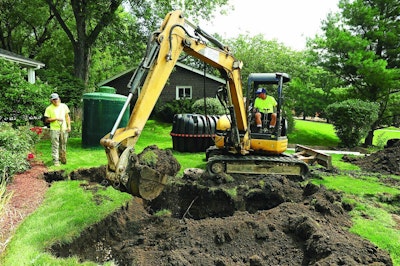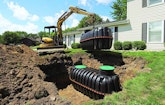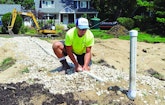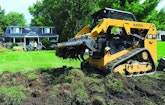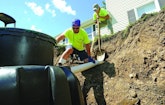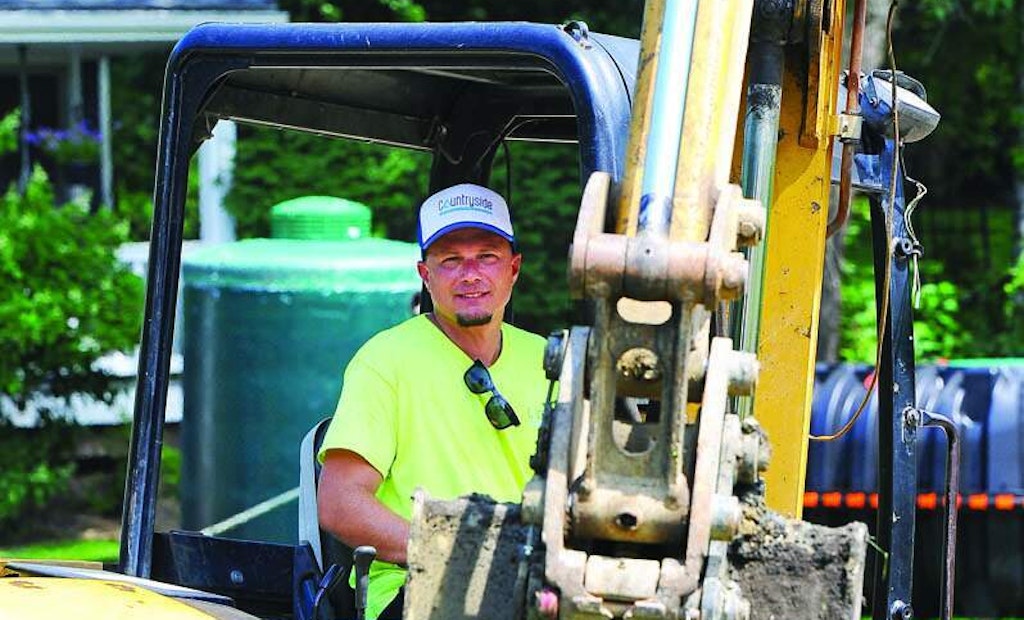
Jordan Johnson operates the excavator on a residential work site in suburban Chicago. (Photos by Michael McLoone)
When Jordan Johnson moved back to northeastern Illinois and started a plumbing business, he was told the region needed septic system installers. He gave it a try, and soon his new installation business pushed the plumbing business aside. And he’s happy about that.
Johnson owns...
